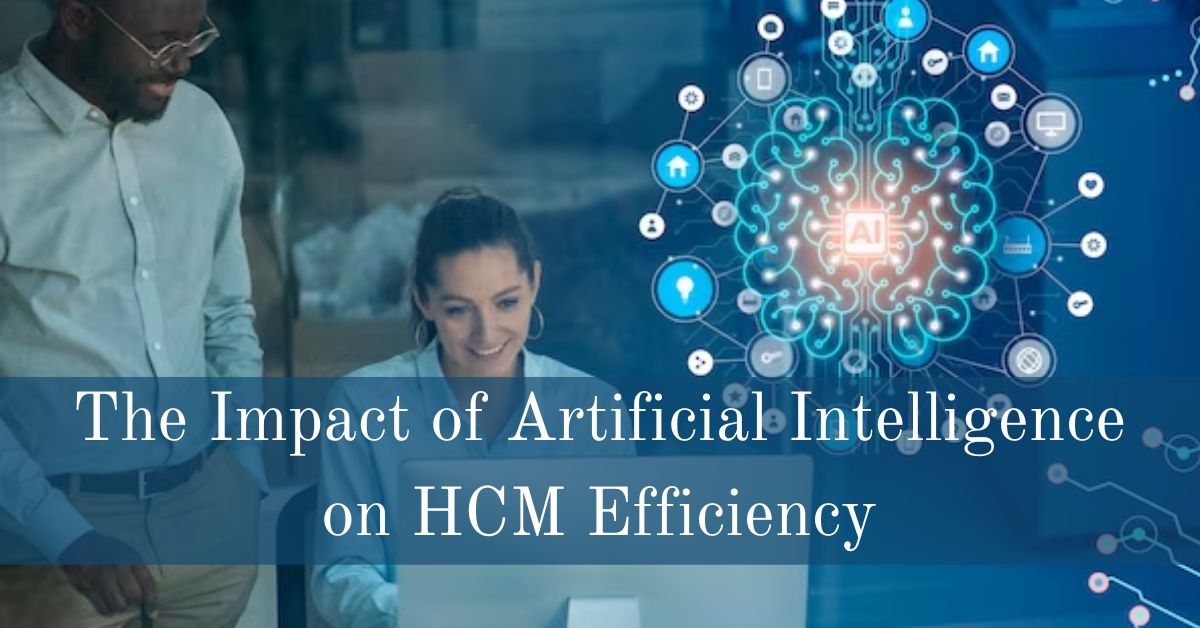Introduction:
In the rapidly evolving landscape of human capital management (HCM), organisations increasingly turn to artificial intelligence (AI) and HRMS cloud solutions to streamline processes, enhance decision-making, and drive overall efficiency. In conjunction with HRMS cloud solutions, AI technologies are revolutionising how companies manage their workforce, from recruitment onboarding to performance evaluation and talent development.
Recruitment and Talent Acquisition:
One of the most significant impacts of AI on HCM efficiency is in the realm of recruitment and talent acquisition. AI-powered tools can analyse vast data to identify and attract top talent. Intelligent algorithms can sift through resumes, match candidates with job requirements, and even conduct initial screenings through chatbots. This accelerates the hiring process and ensures a more data-driven and objective approach to candidate selection.
Employee Onboarding and Training:
AI facilitates a personalised and efficient onboarding process for new hires. Chatbots powered by natural language processing can address queries, guide employees through company policies, and provide real-time assistance. AI-driven training modules can also adapt to individual learning styles, ensuring a more effective and engaging onboarding experience.
Performance Management:
AI plays a crucial role in optimising performance management system. AI can provide valuable insights into individual and team performance by analysing employee data. Predictive analytics can identify potential issues and help organisations proactively address challenges. This enables a more agile and responsive performance management approach, improving productivity and employee satisfaction.
Employee Engagement and Well-being:
AI-driven solutions foster a positive work environment by enhancing employee engagement and well-being. Integrated with attendance and leave management systems, virtual assistants can gauge employee sentiments through sentiment analysis, helping organisations understand and address potential issues before they escalate. Integrating with attendance and leave management, AI-powered wellness programs can provide personalised recommendations for maintaining a healthy work-life balance, contributing to a more satisfied and productive workforce.
Strategic Decision-Making:
AI empowers HCM leaders with data-driven insights, enabling more informed and strategic decision-making. Predictive analytics can forecast future workforce trends, allowing organisations to anticipate skill gaps, identify high-potential employees, and plan for succession. This foresight enables companies to align their human capital strategies with overall business goals, contributing to long-term success.
Challenges and Considerations:
While the impact of AI on HCM efficiency is undeniably positive, organisations must navigate challenges related to data privacy, ethical considerations, and potential bias in AI algorithms. It is crucial to implement AI technologies responsibly, ensuring transparency and fairness in decision-making processes.
Conclusion:
Integrating artificial intelligence into human capital management transforms how top HR companies in India attract, develop, and retain talent. From streamlining recruitment processes to optimising performance management and fostering employee well-being, AI is a powerful ally in enhancing HCM efficiency. As top HR companies in India continue to embrace these technologies, it is essential to strike a balance between harnessing the advantages of AI and addressing potential ethical and privacy concerns. In the era of intelligent workplaces, the synergy between human expertise and AI capabilities is critical to unlocking the full potential of human capital.
 India Unimagined! News, Travel, Finance, Blog & Government Schemes
India Unimagined! News, Travel, Finance, Blog & Government Schemes


